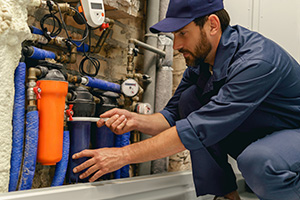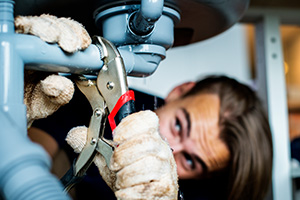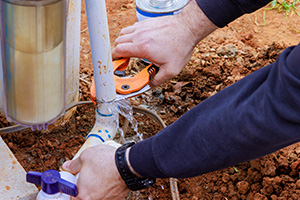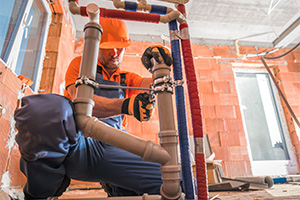 Effective plumbing is essential for the smooth operation of any business. Commercial plumbing systems, which include everything from pipes and drains to fixtures and water heaters, are critical to daily operations and overall functionality. Regular maintenance is key to preventing costly repairs, ensuring safety, and maintaining a healthy environment. This article explores the significance of routine commercial plumbing maintenance, what it entails, and how businesses can benefit from consistent upkeep.
Effective plumbing is essential for the smooth operation of any business. Commercial plumbing systems, which include everything from pipes and drains to fixtures and water heaters, are critical to daily operations and overall functionality. Regular maintenance is key to preventing costly repairs, ensuring safety, and maintaining a healthy environment. This article explores the significance of routine commercial plumbing maintenance, what it entails, and how businesses can benefit from consistent upkeep.
The Role of Regular Maintenance in Commercial Plumbing
- Preventing Costly Repairs: Routine maintenance plays a crucial role in preventing unexpected plumbing failures that can lead to expensive repairs. Regular inspections help identify potential issues before they escalate into major problems. For example, detecting minor leaks early can prevent water damage and reduce the risk of significant plumbing emergencies. Regular maintenance can also help avoid issues such as clogged drains, which, if left unchecked, could lead to more severe blockages and system failures.
- Ensuring System Efficiency: Well-maintained plumbing systems operate more efficiently, which can lead to cost savings over time. For instance, a water heater that is regularly serviced will perform better and consume less energy, reducing utility bills. Additionally, a properly maintained drainage system ensures that wastewater flows efficiently, minimizing the risk of backups and ensuring that the system operates at peak performance.
- Enhancing Safety and Compliance: Routine plumbing maintenance ensures that systems comply with local regulations and safety standards. Regular inspections can identify issues that could pose safety hazards, such as gas leaks or faulty backflow prevention devices. Ensuring compliance with regulations not only protects the business from potential fines but also guarantees a safe environment for employees and customers.
Key Components of a Comprehensive Plumbing Maintenance Plan
- Scheduled Inspections: Regular inspections are a fundamental component of any maintenance plan. These inspections involve checking the condition of pipes, fixtures, water heaters, and other plumbing components. Plumbers use various techniques, such as video camera inspections, to assess the interior of pipes and identify potential problems. Scheduled inspections help detect issues early and ensure that the plumbing system remains in good working condition.
- Routine Cleaning: Routine cleaning is essential for maintaining the health of the plumbing system. This includes cleaning drains and sewer lines to prevent clogs and blockages. Over time, debris and buildup can accumulate in pipes, leading to reduced flow and potential backups. Regular cleaning helps ensure that the system operates smoothly and reduces the risk of major plumbing issues.
- Maintenance of Water Heaters and Fixtures: Water heaters and fixtures require regular maintenance to ensure optimal performance. For water heaters, this includes checking for signs of wear and tear, flushing the tank to remove sediment buildup, and inspecting the heating elements. Fixtures, such as faucets and toilets, should be checked for leaks and proper functioning. Regular maintenance of these components helps extend their lifespan and ensures they operate efficiently.
- Addressing Minor Repairs: Routine maintenance often involves addressing minor repairs before they become major issues. This includes fixing small leaks, tightening loose fittings, and replacing worn-out parts. By taking care of these minor repairs promptly, businesses can prevent larger problems and avoid costly repairs down the line.
Benefits of Investing in Preventative Plumbing Maintenance
- Cost Savings: Investing in regular plumbing maintenance can lead to significant cost savings over time. By preventing major plumbing issues and reducing the need for emergency repairs, businesses can avoid unexpected expenses. Routine maintenance also helps improve system efficiency, leading to lower utility bills.
- Extended Lifespan of Plumbing Systems: Regular maintenance helps extend the lifespan of plumbing systems by keeping components in good condition. Well-maintained pipes, fixtures, and water heaters are less likely to fail prematurely, reducing the need for replacements and repairs. This investment in upkeep ensures that the plumbing system continues to serve the business effectively for years to come.
- Improved Safety and Compliance: Regular inspections and maintenance help ensure that plumbing systems meet safety standards and comply with local regulations. This reduces the risk of safety hazards and legal issues, providing a safe and compliant environment for employees and customers.
- Enhanced Operational Efficiency: A well-maintained plumbing system operates more efficiently, contributing to the overall efficiency of the business. Properly functioning water heaters, drains, and fixtures ensure smooth operations and reduce the likelihood of disruptions caused by plumbing issues.
Choosing the Right Plumbing Maintenance Provider
- Experience and Expertise: When selecting a plumbing maintenance provider, it is essential to choose a company with experience and expertise in commercial plumbing. An experienced provider will have the knowledge and skills to handle various plumbing systems and issues. Look for companies with a proven track record of providing high-quality maintenance services.
- Comprehensive Services: Choose a provider that offers comprehensive maintenance services, including inspections, cleaning, repairs, and emergency support. A full-service provider can address all aspects of plumbing maintenance, ensuring that your system remains in optimal condition.
- Reputation and Reviews: Research the reputation of potential plumbing maintenance providers by checking reviews and testimonials from other businesses. Positive feedback and recommendations from satisfied clients can provide insight into the provider’s reliability and professionalism.
- Responsive and Reliable: Select a provider that is responsive and reliable, with a commitment to timely and efficient service. A responsive provider can address maintenance issues promptly and ensure that your plumbing system remains in good working order.
Conclusion
Regular commercial plumbing maintenance is essential for preventing costly repairs, ensuring system efficiency, and maintaining a safe and compliant environment. By investing in routine inspections, cleaning, and minor repairs, businesses can enjoy the benefits of a well-maintained plumbing system, including cost savings, extended lifespan, and improved operational efficiency. Choosing the right maintenance provider ensures that your plumbing needs are met with expertise and reliability, helping to safeguard your business’s operations and overall functionality.
For businesses looking to invest in preventative plumbing maintenance, contact a trusted commercial plumbing service provider today. Schedule a consultation to discuss your maintenance needs, develop a comprehensive maintenance plan, and ensure that your plumbing system remains in top condition.
 In the bustling environment of modern business operations, a reliable plumbing system is essential for ensuring smooth and uninterrupted service.
In the bustling environment of modern business operations, a reliable plumbing system is essential for ensuring smooth and uninterrupted service.  Introduction to Drain Cleaning Methods
Introduction to Drain Cleaning Methods Introduction to Plumbing Emergencies
Introduction to Plumbing Emergencies Introduction to Commercial Plumbing Contractors
Introduction to Commercial Plumbing Contractors